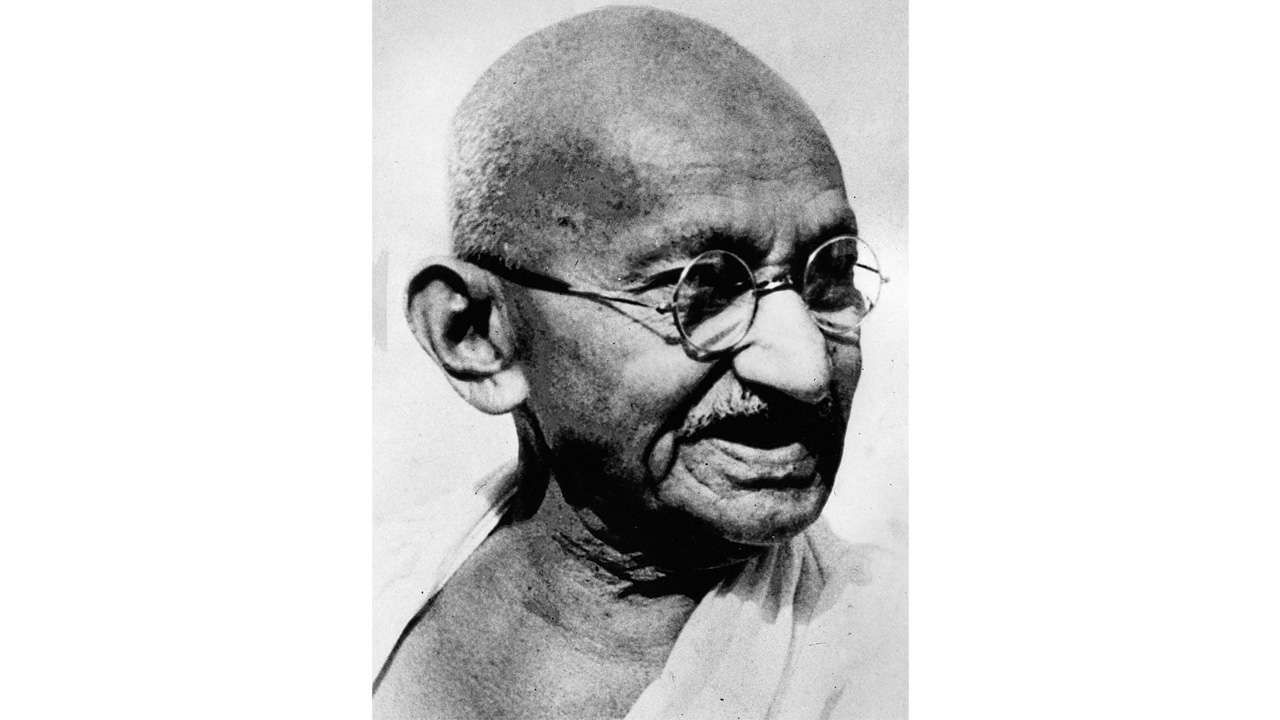
Curating an art music performance as a homage to Mahatma Gandhi on his 150th anniversary is not an unmixed blessing. It is not as if the Mahatma was a connoisseur of art or art music! I quailed at the pedestrian solution of stringing songs about Gandhi, most of them rich in eulogy, poor in poetic substance, poorer in musical value. Gandhi’s favourite Raghupati raghava rajaram is nothing but credo shaped into a chant. Luckily, Vishnu Digambar Paluskar, the patriarch of Hindustani music, set it beautifully in raag Gaara. An old-timer recalled how it was sung (“with much out-of-tune passion!”) by Gandhi and followers on their famous Dandi salt march.
But the salt march memory triggered a solution. Why not a programme of the favourite songs of Carnatic musicians themselves, about Gandhi and his goals?
I start with Semmangudi Srinivasa Iyer, a formidable exemplar of the grand school of Carnatic music. He prized his old ‘charkha’ as much as he did the medals and awards for his musical accomplishments. He had joined freedom fighters lining both sides of the street, all spinning charkhas, as Gandhi’s lieutenant Rajaji led the anti-British salt march to Vedaranyam. Semmangudi sang Subrahmanya Bharati’s fiery poem “When will my freedom thirst be quenched?” because he believed that he heard the Mahatma’s voice in Bharati’s protest.
Ariyakudi Ramanuja Iyengar, in immaculate dhoti and Tirupati Balaji’s stripes on his forehead, seems an unlikely supporter of Gandhian reforms. However, in his famous song Raatiname Gandhi kai baanam (the charkha is Gandhi’s weapon), he emphasised his trust in Gandhi by embellishing each phrase with ‘swara’ swirls in hurricane speed.
Living in a tradition-bound world where resistance is suspect, and iconoclasm feared, many Carnatic musicians were not in tune with all the social changes that Gandhi advocated. True, in general, they empathised with the ideals of ‘satya’ and ‘dharma’, ‘karuna’ and ‘ahimsa’. However, deep-rooted caste and gender consciousness could not be totally erased in so patriarchal a scenario.
But the Gandhi charisma was compelling. His emphasis on ‘Ram’ and ‘Ram Rajya’ were irresistible. After all, idolised saint composer Tyagaraja sang of the same goals. Moreover, Gandhi’s selfless courage could not fail to strike a chord in the hearts of musicians even as it inspired the nation.
Not surprising then that they paid worshipful homage to Gandhi. He represented hope. You will be surprised to learn that some of the concerts in those days were concluded — not with Tyagaraja’s mangalam hailing the divine Rama, a song which remains the mandatory concert finale to this day. The new finale saluted the father of the nation: Mohana dasanukku jaya mangalam, Mahatma Gandhikku shubha mangalam!
DK Pattammal, the grand dame of Carnatic music, was a dedicated Gandhi bhakta. Her inviolable classicism did not prevent her from rendering national songs in every concert, many of them directly describing Mahatma Gandhi as a saviour, at the risk of facing the charge of sedition. Shanti nilava vendum became her signature song, where she demands peace as the Mahatma’s command, and propagates a new mission: the transformation of hearts and minds. Pattammal used familiar folk tunes and flourishes, and with resounding effect - to express her faith in the Mahatma and his message.
When Mahatma Gandhi was shot dead, Madurai Mani Iyer, the khadi-clad superstar who practised simple living and high thinking himself, paid the best homage a musician could. He requested friend and eminent Tamil writer Chitti Sundara Rajan to compose an elegy. The lyric suggests that Gandhi fulfilled the Blue God’s promise of returning to earth in every yuga to destroy evil and establish dharma. It is for us to live up to those ideals!
Usually, such tributes are rendered as a sentiment-spouting tailpiece. But Mani Iyer invested it with the magnificence of the pallavi, which is the most sophisticated, virtuosic and central segment of Carnatic music. Not in some lightweight tune, but in the commanding raga Shanmukhapriya. He turned the repetitions of the lines into melodic marvels, each underscoring the significance of Gandhian ideals.
A few months before his assassination, the Mahatma had requested MS Subbulakshmi to record his favourite Mira bhajan in her voice, to find some solace for his anguish in witnessing the hatred unleashed by the partition. And Hari tum haro became the lament of the nation, played on All India Radio with the announcement of Gandhi’s death.
A year after Gandhi’s demise, writer Kalki Krishnamurti, Subbulakshmi’s friend and mentor, wrote his lament for Gandhi. “O heart! Can all your grieving bring him back?” and in that song, Subbulakshmi continues to sigh with inconsolable shock and grief, for the death of a good man, for fading faith in ahimsa.
All those old “Gandhian” songs ring with a single question: can those values be reclaimed?
Author is a playwright, theatre director, musician and journalist